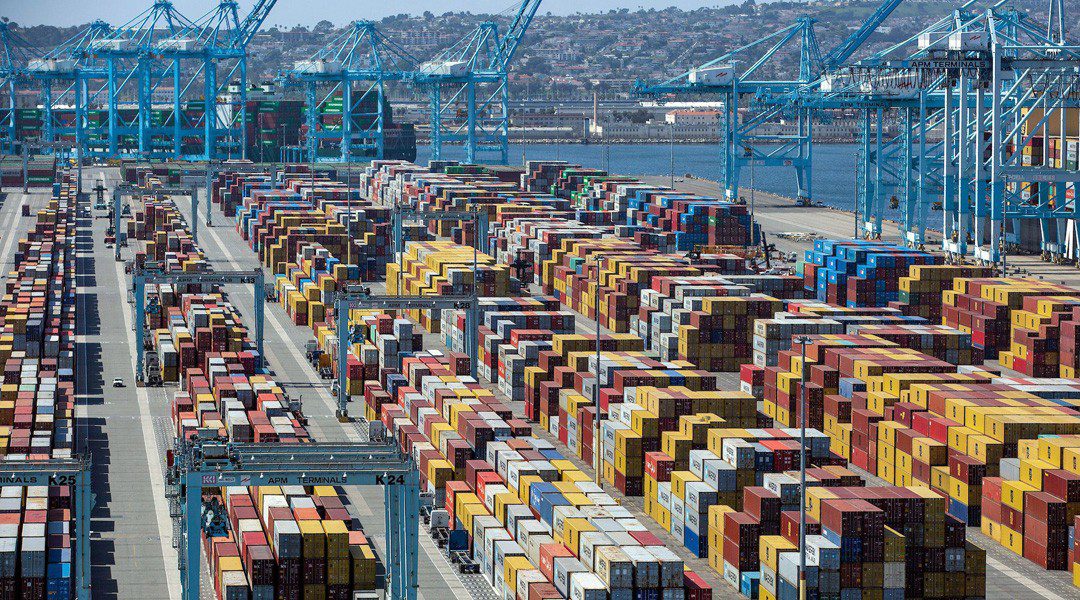In an exclusive interview to World Ports Org., Anita Gajadhar, Proman’s Managing Director Marketing, Logistics and Shipping urges for a level playing field for alternative fuels through global alignment of regulations and incentives. Furthermore, Mrs. Gajadhar argues that a consistent and transparent approach to measuring emissions on a well to wake basis is imperative for the switch to cleaner fuels.
Being also the Chairperson of the Proman Stena Bulk Board, the joint venture between Proman and Stena Bulk, Mrs. Gajadhar explains why methanol is one of the most viable solutions today, highlighting also that a portfolio approach can assist stakeholders in meeting the sustainable shipping challenge successfully.
World Ports Org. What are the key shipping / trends up to 2030 from your perspective and what is your organization doing to manage them?
Anita Gajadhar: The number one challenge for the rest of the decade is to become more sustainable. Shipping is a vital part of the global economy, and every part of the shipping ecosystem has a major role to play in meeting global climate targets. Cleaner shipping fuels will be vital to meeting regulatory goals, customers’ expectations and shipowners’ own sustainability commitments. Proman is working on this by driving the uptake of methanol as a marine fuel. The Proman Stena Bulk joint venture’s fleet of highly efficient methanol-fuelled vessels is proving the viability of methanol as a cleaner fuel today. We have four vessels already in operation and two more on the way in the next 12 months. Proman Stena Bulk is also working with global bunkering hubs and bunkering providers to support the development of simple methanol bunkering guidelines and methanol bunkering infrastructure. The big advantage of methanol as a marine fuel is that it is stable liquid fuel, so existing infrastructure and storage can be used with minimal amendments.
WPO: What is your wish list for the industry /or regulators and all parties involved for the shipping industry following COP27 discussions?
A.G.: The most important milestone, and one that we are yet to achieve, is the establishment of a level playing field for alternative fuels through global alignment of regulations and incentives. While it is positive that markets like the EU are leading the way, a jigsaw of different regulatory environments will create a huge burden for shipowners and charterers, as well as fuel providers. The IMO has a clear role to play in ensuring that this does not occur. The industry also needs a consistent and transparent approach to measuring emissions on a well to wake basis. This will help accelerate the switch to cleaner fuels.
WPO: What are your projections with regards to methanol price in comparison to other alternative fuels?
A.G.: Methanol is one of the most widely traded chemical commodities, so it is a very well understood product with clear pricing curves. This is an advantage methanol has over other emerging alternative fuels, and it should provide some security to shipowners looking to become early adopters. Methanol is price competitive. Conventional methanol produced from natural gas was the cheapest alternative bunker fuel available in September 2022, according to Argus Research. Currently prices are high for renewable methanol, as this represents less than 1% of current global methanol production, but there is a lot of investment going into increasing this capacity, including from Proman. As capacity ramps up over the next 15-20 years, costs will come down with economies of scale and improved technology.
WPO: Apart from methanol, are there any other alternative marine fuels that you have invested in and why?
A.G.: We support a portfolio approach. Meeting the sustainable shipping challenge will require all fuels and all solutions. Proman is also a leading global ammonia producer, which also has a key role in the energy transition and as a future fuel. But methanol is one of the most viable solutions today, which is why it has been the focus of our new vessels and our joint venture vessels with Stena Bulk.
WPO: What is your key message to industry stakeholders regarding a more sustainable future for shipping?
A.G.: The shipping industry cannot afford to wait for a silver bullet. Decisions need to be taken now to meet current regulatory goals and customer expectations. We need to be making the switch to cleaner fuels starting today, while also investing in the solutions of the future. That is why Proman, Stena Bulk and other major shipping companies have chosen methanol, because it can part of the solution right now. It delivers an immediate and significant cut in a number of major GHG emissions while creating a proven pathway for long-term decarbonisation.
The views presented hereabove are only those of the author and do not necessarily reflect those of SAFETY4SEA and are for information sharing and discussion purposes only.





